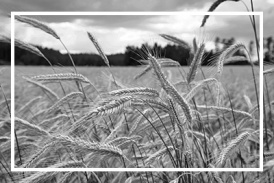Project $RESCUE says Congo bushfires underline its goals for every community, every victim
Fires in the Democratic Republic of Congo have barely been noticed globally, but it's real for residents, highlighting a need for platforms like Project $RESCUE
During the past week, fire in the Democratic Republic of Congo has burned through more than 45,000 hectares and destroyed at least 1500 homes - but in the aftermath of the recent massive headline-grabbing earthquake in Russia, the fires are of little global interest; the world’s attention is seemingly on ‘bigger issues’.
Project $RESCUE is a blockchain powered funding platform that recognises the needs of all communities facing natural disasters and emergencies, no matter how remote or how small and vulnerable – including those communities in Africa.
The platform notes the increasing number of reported natural disasters globally – including earthquakes, tsunamis, mudslides, floods and forest fire – and the accompanying need for adequate funding for preparedness, training, rescue equipment, expert personnel, and logistics.
Records show that wildfires across central Africa and the Democratic Republic of Congo have almost doubled in the past two decades due to hot, dry conditions and developments like deforestation. The subsequent demand for improved responses, powered by platforms like Project $RESCUE, will also continue to rise.
Project $RESCUE provides a solution by connecting socially motivated investors with public safety projects globally, utilising the transparent funding mechanisms in blockchain technology to raise funds that help communities in need while also delivering sustainable returns – including those such as in Africa.
“Bushfires, earthquakes, and every other natural disaster and emergency, all need well-resourced response missions, and that costs money,” a Project $RESCUE spokesperson said.
“Project Rescue is designed to bring together the blockchain investor community to collectively contribute to funding needed to respond quickly and professionally – with the right training and equipment - to assist anyone affected by natural disasters, anywhere.”
Emergency response funding has been inconsistent for years, with the efforts of governments and non-government organisations being increasingly stretched. Project $RESCUE empowers individuals and organisations to contribute to the solution by helping fund life-saving initiatives in a mission-driven investment ecosystem.
Learn more about Project $RESCUE: https://www.projectrescue.xyz/
Track Project $RESCUE on CoinMarketCap: https://coinmarketcap.com/currencies/project-rescue/
Richard Bruinsma
Public Safety Training & Response Group
+61455947813 ext.
email us here
Legal Disclaimer:
EIN Presswire provides this news content "as is" without warranty of any kind. We do not accept any responsibility or liability for the accuracy, content, images, videos, licenses, completeness, legality, or reliability of the information contained in this article. If you have any complaints or copyright issues related to this article, kindly contact the author above.
Rossario George Wins the 2025 Stellar Business Award for Luxury Lifestyle – Global
PASTOR ALVIN BERNARD UNVEILS REVOLUTIONARY EXPLORATION OF BIBLICAL PROPHECIES IN HIS NEWEST RELEASE
ColoringBook.com expands assortment with characters from PBS KIDS® Series
Więcej ważnych informacji
 Jedynka Newserii
Jedynka Newserii

 Jedynka Newserii
Jedynka Newserii

Handel

Mercosur to tylko wierzchołek góry lodowej. UE ma ponad 40 umów handlowych, które mogą destabilizować rynek rolny
Umowa handlowa między UE a krajami Mercosur może znacząco zaburzyć konkurencję na rynku rolnym i osłabić pozycję unijnych, w tym polskich, producentów – ostrzegają rolnicy i producenci żywności. Umowie sprzeciwia się część krajów unijnych, które domagają się klauzuli ochronnych oraz limitów importowych. – Problemem jest jednak nie tylko ta konkretna umowa. Chodzi o cały system wolnego handlu, który się kumuluje z dziesiątek innych porozumień – podkreśla Andrzej Gantner, wiceprezes Polskiej Federacji Producentów Żywności.
Firma
Dzięki zdalnej weryfikacji tożsamości z wykorzystaniem AI firmy zminimalizowały liczbę oszustw. Rozwiązania wykorzystuje głównie sektor finansowy

Z najnowszych danych Eurostatu wynika, że w 2024 roku 5,9 proc. polskich firm korzystało z rozwiązań z zakresu sztucznej inteligencji. W 2023 roku był to odsetek na poziomie 3,67 proc. Wciąż jednak jest to wynik poniżej średniej unijnej, która wyniosła 13,48 proc. Jednym z obszarów, który cieszy się coraz większym zainteresowaniem wśród przedsiębiorców, jest weryfikacja tożsamości przez AI, zwłaszcza w takich branżach jak bankowość, ubezpieczenia czy turystyka. Jej zastosowanie ma na celu głównie przeciwdziałać oszustwom i spełniać wymogi regulacyjne.
Prawo
Daniel Obajtek: Własne wydobycie i operacyjne magazyny to filary bezpieczeństwa. Zgoda na magazyny gazu poza krajem to rezygnacja z suwerenności energetycznej

Były prezes Orlenu ostrzega przed zmianami w ustawie o zapasach ropy naftowej, produktów naftowych i gazu ziemnego. Jego zdaniem przygotowana przez rząd nowelizacja tzw. ustawy magazynowej i ujednolicanie unijnej polityki energetycznej to zagrożenie dla bezpieczeństwa energetycznego Polski. W jego opinii tylko silna spółka narodowa, własne wydobycie, krajowe magazyny i zbilansowany miks energetyczny zapewnią Polsce bezpieczeństwo i konkurencyjność.
Partner serwisu
Szkolenia

Akademia Newserii
Akademia Newserii to projekt, w ramach którego najlepsi polscy dziennikarze biznesowi, giełdowi oraz lifestylowi, a także szkoleniowcy z wieloletnim doświadczeniem dzielą się swoją wiedzą nt. pracy z mediami.





![Nestlé w Polsce podsumowuje wpływ na krajową gospodarkę. Firma wygenerowała 0,6 proc. polskiego PKB [DEPESZA]](https://www.newseria.pl/files/1097841585/fabryka-nesquik_1,w_85,r_png,_small.png)



.gif)

 |
| |
| |
|